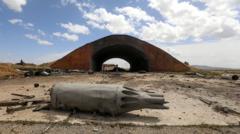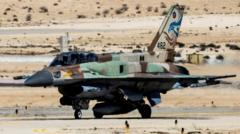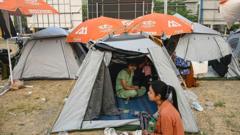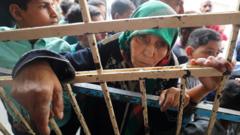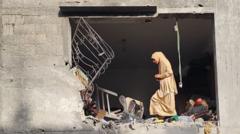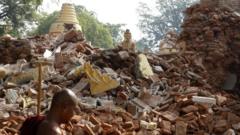As Hezbollah grapples with devastating losses from recent conflicts, its internal dynamics and future as a formidable entity remain in question.
**Hezbollah Faces Tough Decisions Amidst War's Aftermath**
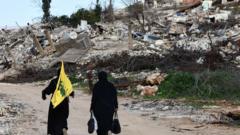
**Hezbollah Faces Tough Decisions Amidst War's Aftermath**
The political and military future of the Lebanese militia is under scrutiny as support wanes.
In the wake of a brutal conflict, Hezbollah, the Shia militia and political movement in Lebanon, finds itself confronting significant challenges that question its strength and influence within the country. The last war left profound scars, as evidenced by the tragic incidents involving low-tech pagers rigged with explosives, which detonated during an emergency alert on September 17, 2022, injuring and killing civilians and Hezbollah members alike. Adam, a nurse affected by the incident, recounted a harrowing experience where the pager he relied upon exploded, severely injuring him but failing to shake his steadfast loyalty to the group.
Founded during the turbulent 1980s amidst the Lebanese Civil War, Hezbollah has historically held a dual role as both a military force and a political entity. Yet, its position is more precarious than ever following Israeli airstrikes that devastated key strongholds and led to the assassination of several high-ranking members, including long-time leader Hassan Nasrallah. This has fueled discontent within the group's support base regarding the ongoing financial struggles, reconstruction delays, and allegations of mismanagement.
Along the southern Lebanese border, communities ravaged by conflict exhibit an enduring allegiance to Hezbollah, with visible support in the form of flags and posters. However, beneath the surface, sentiments are shifting, and some criticize the group's choices during the recent war, expressing fears that its military actions jeopardize their safety and future livelihoods. As the Lebanese Parliament elects a new leadership, the pressure mounts on Hezbollah to adapt its policies amid rising calls for disarmament.
Moreover, geopolitically, Iran's backing, crucial for Hezbollah’s arsenal and capacity, faces challenges with the shifting dynamics in Syria and broader regional conflicts, further complicating supplies and strategic operations. As citizens continue to demand accountability and reconstruction assistance, the risk of internal dissent grows, suggesting that Hezbollah’s formidable past may not guarantee its future in a rapidly evolving landscape.
With an inexperienced leadership succeeding Nasrallah, confusion within the ranks, and rising opposition, Hezbollah must reassess its strategies moving forward. The lingering question remains whether the group can navigate these treacherous waters to restore its stature or if it will ultimately invite its own demise through miscalculated actions and lost support.

